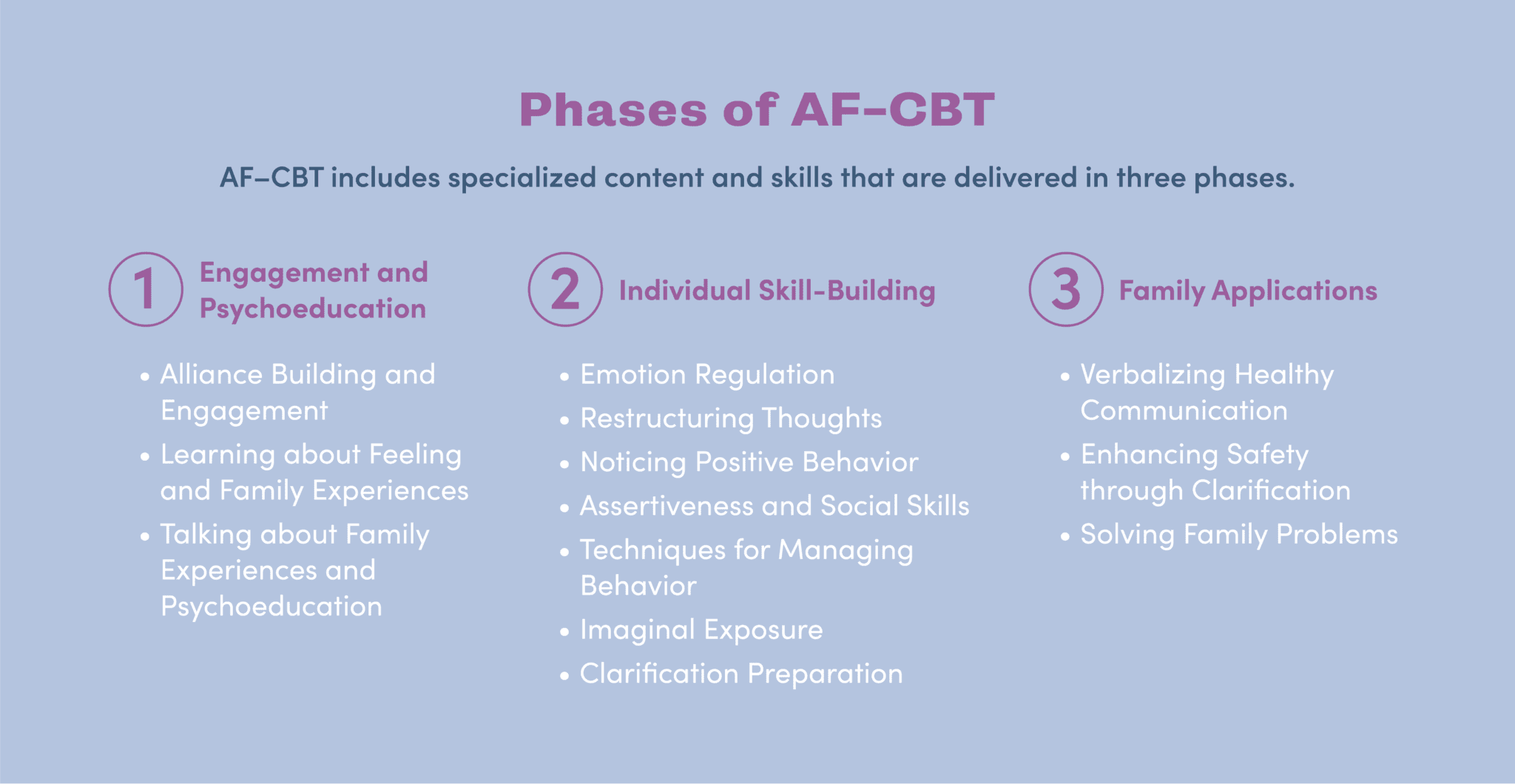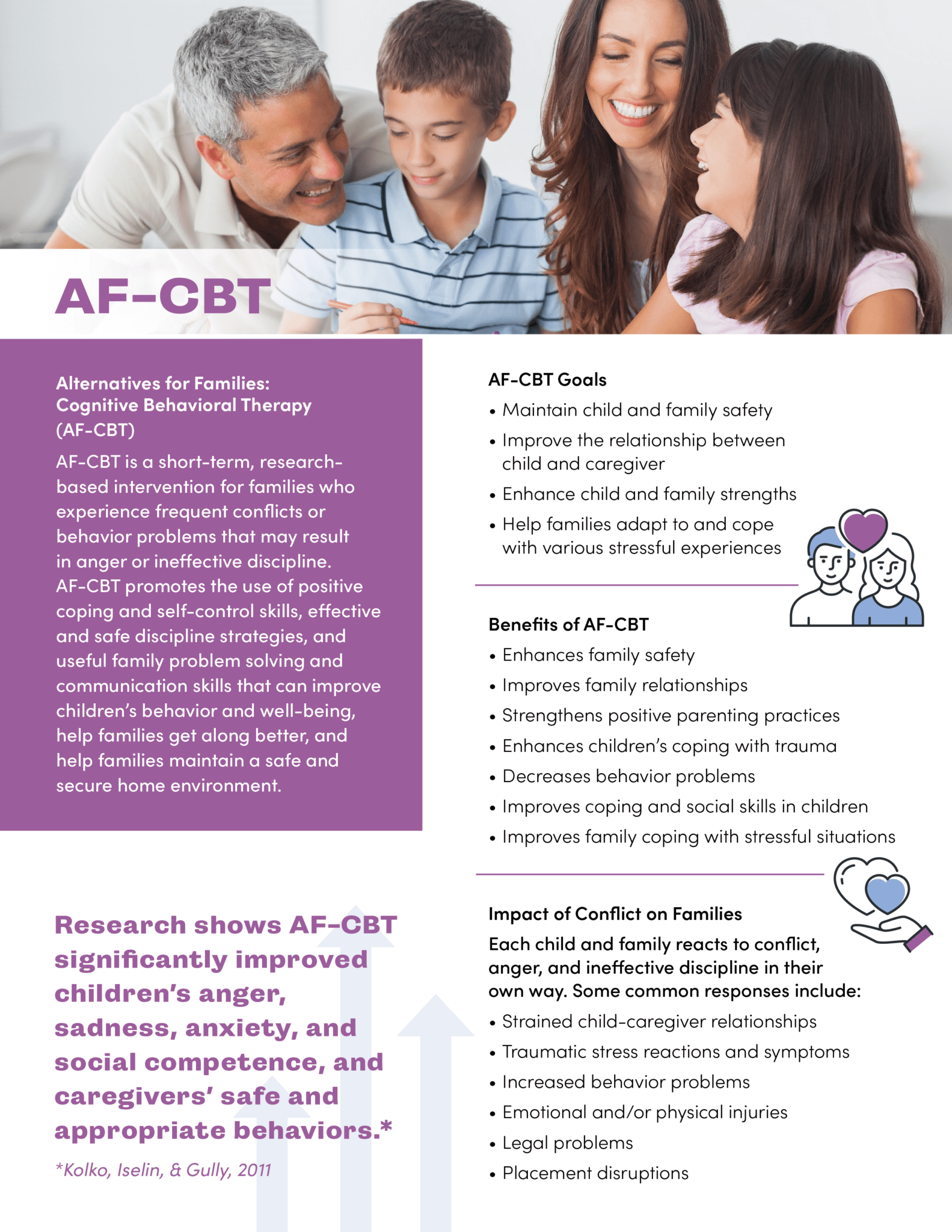AF-CBT is designed to improve the relationships between children and parents/caregivers in families. It is most suitable for school-aged children (age 5-17) who exhibit some level of behavioral or emotional dysfunction, and for caregivers who may resort to uncomfortable or unsafe levels of physical coercion, harsh punishment or hostile exchanges. Two randomized trials have shown it to be superior to routine community care (generalized counseling) for reducing children’s conduct and oppositional behaviors, as well as in reducing internalizing symptoms. Further, parents who receive AF-CBT demonstrate significantly greater decreases in the use of physical discipline and in anger at post-treatment as compared to those in routine community care


AF-CBT Overview
AF-CBT Goals
Maintain child and family safety
Improve the relationship between child and caregiver
Enhance child and family strengths
Help families adapt to and cope with various stressful experiences
Benefits of AF-CBT
-
Enhances family safety
-
Improves family relationships
-
Strengthens positive parenting practices
-
Enhances children’s coping with trauma
-
Decreases behavior problems
-
Improves coping and social skills in children
-
Improves family coping with stressful situations

